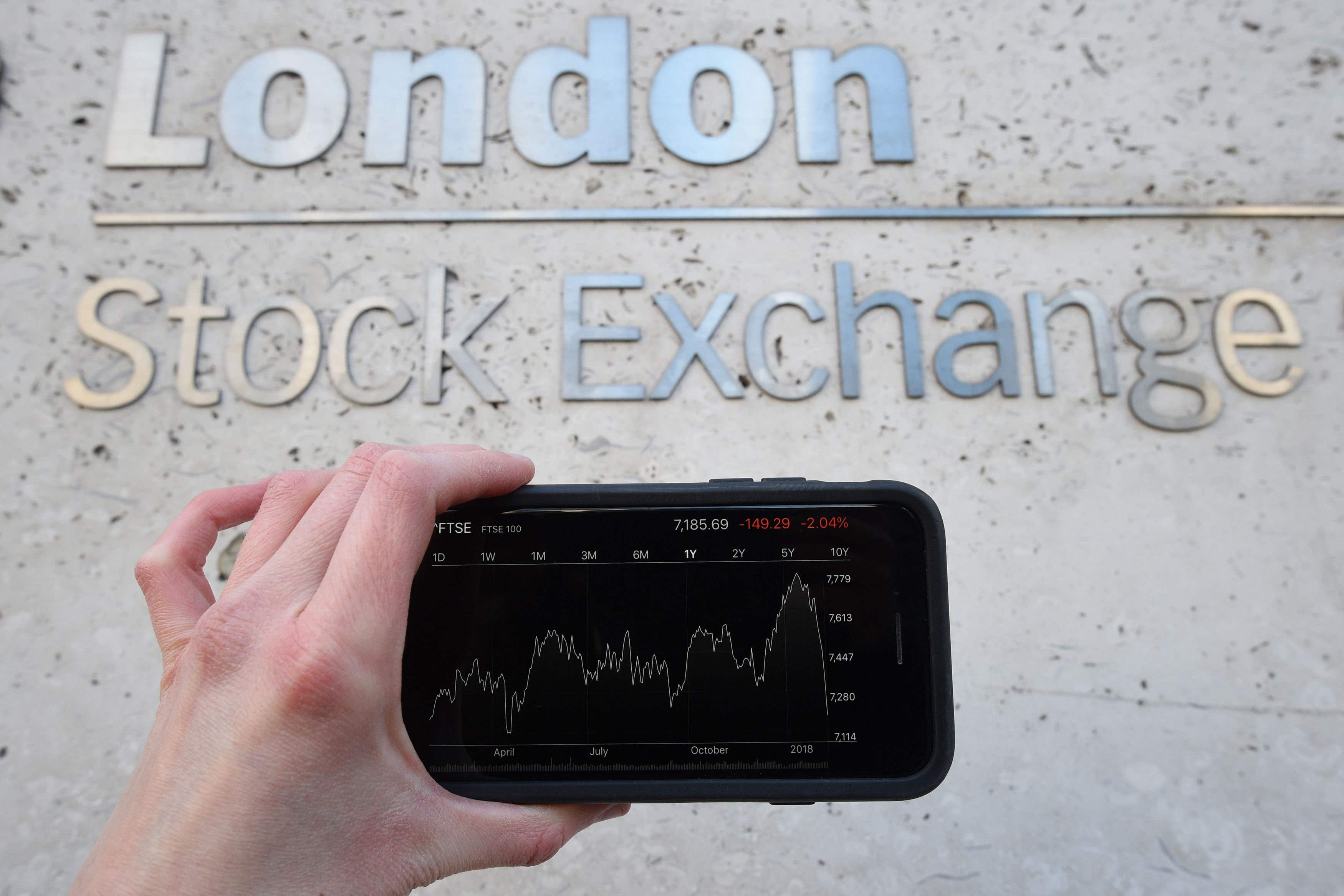Sterling falls against a stronger dollar as FTSE 100 slips into the red
The FTSE 100 closed the day a fraction lower, down 6.18 points or 0.09% to 6,991.09.

The pound slipped in value against the US dollar on Friday as a better-than-expected jobs market indicated a relatively healthy economy across the pond.
A stronger dollar also helped lift the FTSE 100 during the day, which is made up of stocks that are largely internationally focused.
Energy giants Centrica, BP and Shell were among the companies that made gains as the energy crisis once again hit the headlines, amid reports that UK households could be urged to ration energy use to avoid winter power cuts.
The FTSE 100 closed the day a fraction lower, down 6.18 points or 0.09% to 6,991.09.
In the US, employers added 263,000 new jobs in September, higher than analyst’s expectations but far lower than the number of jobs added in previous months.
But analysts suggested that signs of a still-tight jobs market could mean that the US Federal Reserve continues to hike up interest rates in a bid to tame soaring inflation.
Once more we are back to buying the dollar and selling stocks in a continuation of the themes that have been so strong throughout the year
Chris Beauchamp, chief market analyst at online trading platform IG, said: “Those hoping for a Fed pivot have been sorely disappointed with today’s job numbers which have confirmed that US economy continues to rumble along quite well.
“The latest bear market bounce has now begun to wilt as investors wearily return to expectations of at least 125 basis points of tightening by the end of the year, with more to come in 2023.
“Once more we are back to buying the dollar and selling stocks in a continuation of the themes that have been so strong throughout the year.”
Sterling was down by about 0.6% against the dollar at one point during the day, the lowest level since Monday, and was 1.1112 US dollars when European markets closed.
But America’s top indices had declined substantially when European markets closed, with the S&P 500 dropping by 2.2% and Dow Jones down 1.67%.
Elsewhere in Europe, the German Dax was down 1.59% and the French CAC had fallen 1.17%.
The pound was also marginally down against the dollar, dipping about 0.3% to 1.136 euros.
In company news, pub chain Wetherspoons told shareholders that it has still not managed to return to a profit since the heavy impact of the pandemic.
The company reported pre-tax losses before exceptional items of £30 million this year, whereas before the pandemic it had made a profit of £132 million.
Nonetheless, its share price jumped by more than 15% on Friday as investors reacted positively to the chain’s stronger sales figures.
Superdry also saw a boost to its share price after reporting that it had swung to a profit and its revenues were 10% higher than the previous year.
But the retailer echoed Wetherspoons’s concerns that it still had not returned to pre-pandemic sales levels and said it does not expect to during the current financial year.
Its share price was up by more than a 10th.
Hospitality giant Whitbread saw a slight decline in its share price after pledging to invest £15 million into its workforce and give 30,000 of its staff a pay rise.
The Premier Inn and Beefeater owner said that it was lifting its minimum wage by 4% and giving staff a one-off cost-of-living payment of £300. Its shares were down by about 1.7% after the big support package was announced.
The biggest risers on the FTSE 100 were Centrica, up 2.5p to 70.94p, BAE Systems, up 27.6p to 846.2p, Imperial Brands, up 47p to 1,991p, AstraZeneca, up 192p to 10,030p and BP, up 8.75p to 469.1p.
The biggest fallers on the FTSE 100 were Ocado Group, down 25.5p to 432.1p, JD Sports Fashion, down 4.36p to 99.74p, Kingfisher, down 8.8p to 205.6p, Taylor Wimpey, down 3.58p to 89.44p and Scottish Mortgage Investment Trust, down 30p to 759p.
Bookmark popover
Removed from bookmarks